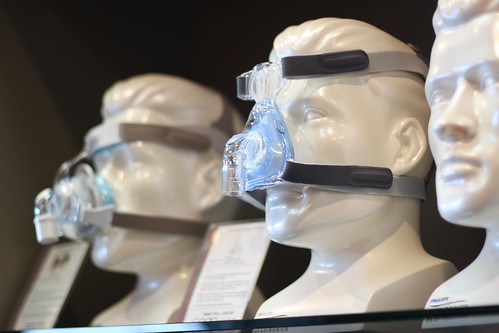There are a lot of people out there who think that their excessive tiredness is just the way things are. This is completely false. Many people suffer from sleep apnea, a condition that everyone should be aware of. Drop some vices to combat sleep apnea. Smoking and drinking are some of the biggest offenders. The muscle-relaxing effects of alcohol are very hard on the whole respiratory system and lead to significant breathing problems. Smoking damages your lungs over time. Drop as many bad habits as you can as early as possible. Regular practice on a wind instrument can minimize some of your sleep apnea symptoms. A German study has shown that playing wind instruments such as the digeridoo will help your sleep apnea. You'll have better control over your airway's dilation and the stiffness of the surrounding tissues if you exercise these muscles. Due to this, regular play can translate into good sleep at night. Try quitting smoking and drinking alcohol if you have sleep apnea. Both smoking and drinking promote relaxation of the airways causing sleep apnea and excessive snoring. Unlike costly surgeries or other medical interventions, dropping these habits will actually save you money. Try using a mouth guard that's custom-fitted for you. These guards are designed for patients with sleep apnea. The mouth guard is more comfortable to use than a CPAP machine that works by applying constant positive airway pressure. A mouth guard will work by positioning the jaw and tongue in a helpful way that will allow for easier breathing while asleep. Children are susceptible to sleep apnea. Children who are frequently tired or who have a poor attention span may have sleep issues. Often these symptoms are similar to ADHD, but you need to talk to a physician and consider sleep apnea as a cause as well.
Home »
» Living With Sleep Apnea After You Have Been Diagnosed
Living With Sleep Apnea After You Have Been Diagnosed
Posted by Unknown
Posted on 3:41 AM
with No comments
Living With Sleep Apnea After You Have Been Diagnosed
There are a lot of people out there who think that their excessive tiredness is just the way things are. This is completely false. Many people suffer from sleep apnea, a condition that everyone should be aware of. Drop some vices to combat sleep apnea. Smoking and drinking are some of the biggest offenders. The muscle-relaxing effects of alcohol are very hard on the whole respiratory system and lead to significant breathing problems. Smoking damages your lungs over time. Drop as many bad habits as you can as early as possible. Regular practice on a wind instrument can minimize some of your sleep apnea symptoms. A German study has shown that playing wind instruments such as the digeridoo will help your sleep apnea. You'll have better control over your airway's dilation and the stiffness of the surrounding tissues if you exercise these muscles. Due to this, regular play can translate into good sleep at night. Try quitting smoking and drinking alcohol if you have sleep apnea. Both smoking and drinking promote relaxation of the airways causing sleep apnea and excessive snoring. Unlike costly surgeries or other medical interventions, dropping these habits will actually save you money. Try using a mouth guard that's custom-fitted for you. These guards are designed for patients with sleep apnea. The mouth guard is more comfortable to use than a CPAP machine that works by applying constant positive airway pressure. A mouth guard will work by positioning the jaw and tongue in a helpful way that will allow for easier breathing while asleep. Children are susceptible to sleep apnea. Children who are frequently tired or who have a poor attention span may have sleep issues. Often these symptoms are similar to ADHD, but you need to talk to a physician and consider sleep apnea as a cause as well.
There are a lot of people out there who think that their excessive tiredness is just the way things are. This is completely false. Many people suffer from sleep apnea, a condition that everyone should be aware of. Drop some vices to combat sleep apnea. Smoking and drinking are some of the biggest offenders. The muscle-relaxing effects of alcohol are very hard on the whole respiratory system and lead to significant breathing problems. Smoking damages your lungs over time. Drop as many bad habits as you can as early as possible. Regular practice on a wind instrument can minimize some of your sleep apnea symptoms. A German study has shown that playing wind instruments such as the digeridoo will help your sleep apnea. You'll have better control over your airway's dilation and the stiffness of the surrounding tissues if you exercise these muscles. Due to this, regular play can translate into good sleep at night. Try quitting smoking and drinking alcohol if you have sleep apnea. Both smoking and drinking promote relaxation of the airways causing sleep apnea and excessive snoring. Unlike costly surgeries or other medical interventions, dropping these habits will actually save you money. Try using a mouth guard that's custom-fitted for you. These guards are designed for patients with sleep apnea. The mouth guard is more comfortable to use than a CPAP machine that works by applying constant positive airway pressure. A mouth guard will work by positioning the jaw and tongue in a helpful way that will allow for easier breathing while asleep. Children are susceptible to sleep apnea. Children who are frequently tired or who have a poor attention span may have sleep issues. Often these symptoms are similar to ADHD, but you need to talk to a physician and consider sleep apnea as a cause as well.


0 comments:
Post a Comment